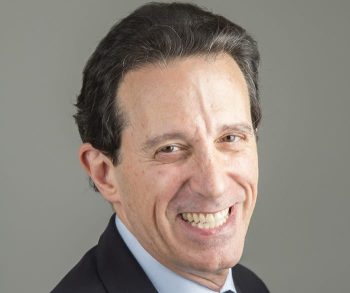I care for a diverse population of individuals in my primary care practice. It’s hard enough to motivate behavior change in people who have little motivation, but it’s even more challenging when it’s hard to connect with them because of cultural disparities. But sometimes, through trial and error, we can get it right.
Joseph (not his real name), a divorced 80-year-old African American, has been my patient for over 20 years. He has type 2 diabetes, hypertension, a high BMI, and chronic kidney disease. He had been a pack-a-day smoker and was drinking too much alcohol. A few years after he developed coronary artery disease and required a stent he was able to quit smoking and also stopped using alcohol, which was a tremendous accomplishment. We were even making some improvements in his diet. But he was stubbornly sedentary and increasing physical activity remained elusive.
Unfortunately, despite repeated promises to do so, he was never motivated enough to exercise. His neighborhood was not great for walking outdoors. There was a treadmill in the basement of his building, but there was no TV and he found it boring. No matter what I suggested it just didn’t work.
A few months ago at our last visit, I had an idea. I remembered a study in which participants who were permitted to listen to engaging audiobooks only when they were exercising did more exercise than those who did not. I also enjoy listening to audiobooks when I exercise.
I ask all my patients as part of their annual preventive health visits if they have any hobbies. I checked his record and noticed that Joseph liked reading. I asked him if he had a smartphone, which he did (like 97% of the US population, including an impressive 76% of those 65 and up), but he said he didn’t know how to do much with it. Joseph couldn’t afford a subscription to Audible, but I have found it wonderful to listen to audiobooks from my public library using the Libby app, all for free. Joseph had a library card, so we were in business.
I then spent a few minutes helping him download the Libby app and create an account using his library card, and then we downloaded an audiobook by James Patterson, who Joseph told me was his favorite author. You should have seen the joy in his face when he started listening. He told me he would try listening while using the treadmill in his building.
I had no idea if this would work for Joseph because nothing else did. But today I saw a note from his cardiologist. It said:
“He had started to use the treadmill after Dr. Sands installed the Libby app on his phone, and would walk for ~1 mile at a time.”
This was a huge accomplishment, something I never thought I would see. Unfortunately, the next sentence was:
“However he stopped using the treadmill for the past two weeks and can no longer access the app.”
The cardiologist reinstalled the app for him and he is presumably enjoying listening to James Patterson thrillers once again as he improves his health.
This is not a scientific study, but where the rubber meets the road in healthcare is in our personalized interactions with individual patients. We don’t know whether this behavior will persist over time, but when a behavior change becomes a habit it becomes self-sustaining. A mile of walking a few times per week may not sound impressive, but moving to that from a lifetime of sedentary behavior is monumental.
Sometimes motivating patients involves creativity and personalization. But too frequently the pointing and clicking of EHR use and struggling to get through the day prevents us from listening to the patient and understanding their challenges, needs, and motivations; we need to meet them where they are. Healthcare is not a transactional system–it is best practiced as a collaboration between the patient and the healthcare professional, which we call Participatory Medicine. In this case, Joseph was willing to walk on the treadmill but needed something rewarding in return. Figuring that out with him and solving his problem only took a few minutes but was deeply satisfying (improving the joy of practice) and may measurably improve a patient’s life.
Danny Sands, MD, MPH, FACP, FACMI is a founder and Chief Advocacy Officer for the Society for Participatory Medicine. He is an Assistant Clinical Professor of Medicine at Harvard Medical School, and frequent speaker at medical conferences.







This is a wonderful story, Danny! May we all have physicians (and nurses) who are as thoughtful and patient as you have been with this patient.
Excellent post, Danny! Thanks !